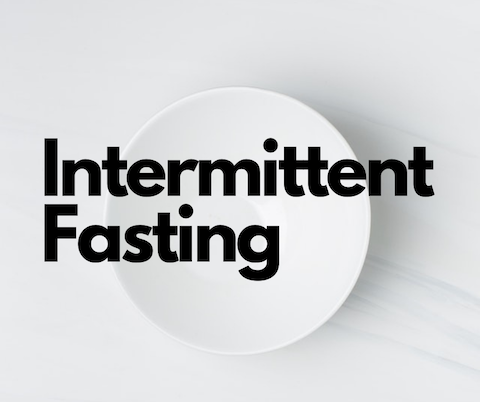Intermittent Fasting Benefits
Intermittent fasting has received a lot of recognition lately as a simple weight loss plan that is sustainable and effective. It involves sticking to a restricted eating schedule each day, which allows your body to fast longer than normal.
People most commonly know Intermittent fasting for weight loss, but there are other benefits as well. Some intermittent fasting benefits consist of insulin reduction, increased human growth hormone, and cell regeneration, which can all help your body function better as a whole.

Some of the Longest Living Tribes are Reaping the Intermittent Fasting Benefits
Intermittent fasting keeps you healthy. It can slow down aging and reduce your chances of getting a disease. Some of the longest living tribes in the world, like the Hunza people of Northern Pakistan, have emphasized eating less than 2000 calories per day and use intermittent fasting or occasional fasting as a part of their diet. Intermittent fasting benefits the body by allowing it to heal and regenerate itself. It allows the body to spend less time on digesting meals and more time on repairing the body so that it functions optimally.
How does intermittent fasting work?
Normally our body fuels itself through the foods we eat, mostly glucose which comes from carbohydrates and sugar. When you’re continuously feeding yourself throughout the day, your body is getting a consistent supply of glucose, which means it doesn’t need to tap into body fat as its alternative source of fuel.
So, your body isn’t burning fat unless you’re an active person that exercises often or if you’re strictly limiting your carb intake. Intermittent fasting doesn’t require any food restrictions, however by not eating for long periods of time, your body adjusts to this new schedule, thereby increasing metabolic rate and requiring less food during eating hours. Essentially, your stomach shrinks due to fasting and doesn’t require or crave excessive food.
What Happens in Our Brain When We Eat?
This restrictive eating pattern can literally reprogram your system to only crave and eat the foods that are required to survive. The idea lies behind the chemical called dopamine. Ok, I know you’re probably scratching your head, asking why the two are connected. Well, there is actually a strong connection between excessive eating and dopamine release. Every time we eat, our body releases dopamine. When we eat unhealthy foods, such as sugars, saturated fats, and processed foods, our body releases excessive amounts of dopamine. This excessive release keeps us eating more and more, because we want to keep experiencing that pleasure that comes along with eating. You can retrain your brain to stop excessively releasing dopamine through a dopamine fast. Intermittent fasting is another form of dopamine fasting, although intermittent fast only requires fasting from food, while a dopamine fast requires fasting from other pleasurable activities as well, such as sex and electronics.
Ok, back to intermittent fasting benefits and how it affects the body on a cellular and hormonal level. By sticking to a limited eating schedule, you’re changing how your body produces and distributes hormones, which can actually be the solution to some hormonal imbalances.
Intermittent Fasting Benefits
1) Fat Burn
Intermittent fasting Increases norepinephrine / noradrenaline, which is responsible for burning fat for energy production. This is where the weight loss benefits from intermittent fasting comes from.
These hormones are stress hormones, so if you find that you are experiencing higher than normal stress or anxiety, then you should eat something and adjust your fasting / eating hours.
2) Helps the Body Function Better and Promotes Longevity
Intermittent fasting Increases human growth hormone (HGH), which creates, maintains, and repairs healthy tissue in the brain and body, thereby helping the brain function better, repair muscles, and even improve the appearance of skin. Intermittent fasting gives the metabolism a rest, which means that the retained energy can be spent on growth and repair.
3) Can Reduce Your Risk of Type 2 Diabetes, Obesity, Heart Disease and Cancer
Intermittent fasting reduces insulin levels, which is beneficial because high levels exhaust your pancreas thereby contributing to your risk of type 2 diabetes, obesity, heart disease and cancer.
While intermittent fasting is great at reducing insulin, levels that are too low can cause brain fog, irritability, and fatigue. So, if you find that you’re experiencing these symptoms, then you should eat something and increase your eating hours, while reducing your fasting hours. For example, instead of intermittent fasting 16 / 8 hours, you would change it to 14 / 10 hours.
4) Helps Avoid Injury and Disease
Intermittent fasting promotes cellular regeneration. Cell restoration and repair is needed in order for the human body to survive and avoid injury and disease. Intermittent fasting helps the body retain energy which can now be spent on building and maintaining healthy cells.
Intermittent Fasting Plan
Before you start a fasting plan, check with your doctor to make sure you are in good health because intermittent fasting isn’t for everyone, especially those with diabetes, low blood pressure, eating disorders, and women who are pregnant or breastfeeding.
There are different types of intermittent fasting schedules that you can choose from, but the most common are 16 / 8 or 14 / 10.
- Intermittent fasting 16 / 8 is the most common schedule used for optimal weight loss benefits and is known as the most sustainable schedule. This involves fasting for 16 hours, while only eating for 8 hours. For example, you would stop eating at 6 pm the night before and wouldn’t eat again until 10 am the next day. This would leave you with 2 meals or less per day, with very light snacking in between.
- Intermittent fasting 14 / 10 would consist of 14 hours of fasting and only 10 hours of eating. For example, you would stop eating at 7 pm the night before and wouldn’t eat again until 9 am the next day. This schedule would enable you to eat 2 – 3 meals per day, with light snacking in between.



What is allowed during an intermittent fast
- Water
- Coffee
- Exercise
- Tea
- Supplements that don’t require food
- Optional: Freshly squeezed veggie juices that are extremely low in sugar.
Learn more about Habitat for Wellness

